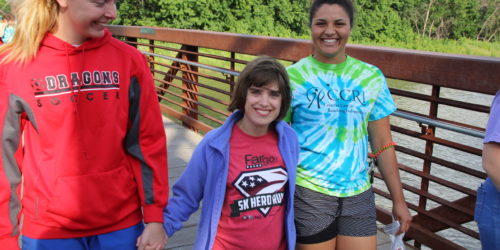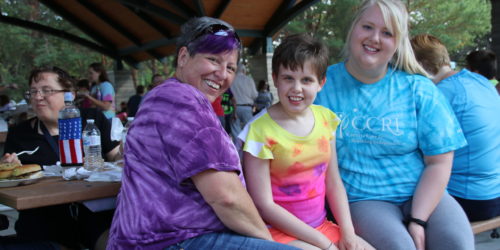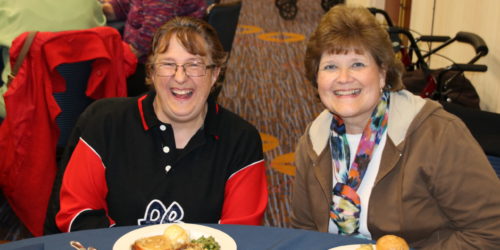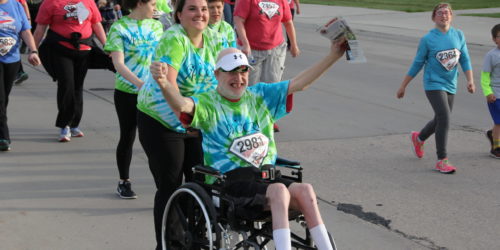Experience is Everything
Our services are as unique as each of the people we serve. We support people throughout Clay and Wilkin Counties.
- Supported Living Services (SLS)
- Independent by Design (IBD)
- Options for Independent Living
- Mental Health Services
- Life Enrichment
- Positive Support Services (PSS)
Supported Living Services
SLS provides personalized, life-enriching services to people with disabilities who need assistance 24 hours a day. It expands opportunities, allowing individuals to live and work in the community.
All SLS services are delivered by highly-trained professionals, many of whom have years of service experience with CCRI. This deep experience—along with the broad range of skill across our team—lets you rest assured we will provide knowledgeable, individualized care for your situation.
Our team collaborates with you and your family to develop a customized program that meets your needs and dreams.
We have an excellent reputation for being an outstanding neighbor and pride ourselves on keeping our homes in good repair, updated, and beautifully furnished.
Our in-house RN and nursing services provide coordination of each person’s medical services and contribute significantly to CCRI’s reputation as an industry leader.
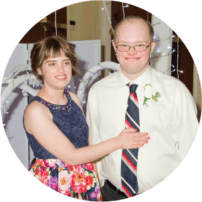
Lizzy’s Success Story
Elizabeth Ann was born to parents who loved her very much but, due to their own disabilities, weren’t able to take care of her. Due to her fragile medical state, Liz frequently required resuscitation. She spent almost the whole first year of her life in the hospital while the social workers searched for a foster family for her. She was absolutely the most adorable little baby and the entire nursing staff loved her. I was one of those nurses. My husband and I already had four children of own, but after some consideration, we became foster parents so Liz could have a home. When Liz was nine months old, she joined our clan!
For more information on Supported Living Services, contact Eric Hilber
Independent by Design
Independent by Design is an alternative to traditional community residential setting care that allows flexibility to provide services tailored to the individual. These services are designed to adapt to the increasing or decreasing needs of individuals who live in their own homes. Services available include 24-hour emergency staff response with technology and supplemental support in areas including budgeting, menu planning, grocery shopping, assistance with medical appointments, and additional areas as identified.
Personalized Adaptation as Needs Change
This is where our people and technology come together. No two applications are the same. Your team will assist you in determining what equipment is needed to meet your specific needs. IBD is unique in the way we apply technology to meet the individual risks of each person through alerts, reports or both to detect conditions of concern (e.g. forgotten medication, a possible fall, concern about food intake).
A Caregiving Partnership
We work with you to assess areas of concern and vulnerability, and then design the hardware and software to identify and respond to the right set of conditions. For example: If the medication cabinet didn’t open when it should, the system calls to remind you and will keep calling if the cabinet isn’t opened. It can also email a caregiver who should stay informed and/or generate a report on how often reminders are needed.
Economical Peace-of-Mind
Sensing technology can deliver peace of mind to individuals, families, and professional caregivers for pennies on the dollar of existing facility care options. Each monitoring application is custom designed for the individual.
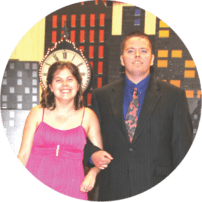
Justin’s Success Story
A core tenet of CCRI is to provide personalized, custom care to those we support. The Independent by Design (IBD) program incorporates technology to ensure efficient, quality, and extremely customizable care. Utilizing sensors to monitor environmental conditions such as motion or temperature, the IBD program provides an alternative option to traditional adult foster care. The technology can be set up to meet the risks each person faces with a combination of live alerts and reports, using only sensors and no cameras. Technology eliminates the need for a 1:1 caregiver at each location and allows CCRI to extend the reach of care provided.
IBD Technology Types and Uses
Contact Sensor
Placed on doors, windows, cabinets, drawers, medication boxes, etc.
- Used to monitor if people are coming and going from home.
- Used to see if individual is taking medication (e.g. if the individual is supposed to take a medication at 8 A.M., the sensor on the medication box can be set for 7–9 A.M. and if the medication box isn’t opened, an alert will go to the 24-hour CCRI team member).
- Used to monitor behaviors or habits (e.g. linking the refrigerator to a bed sensor to monitor if an individual is eating during the night).
Bed Sensor
Placed between the mattress and box spring of the bed.
- Used to monitor if someone is waking up on time.
- Used to monitor sleep patterns.
- Linked to other sensors to monitor behaviors or habits.
Motion Sensor
Placed on the wall in any room.
- Used to monitor if there is someone in the room.
- Can link multiple sensors to know if there is more than one person in the home.
- Used to monitor behaviors or habits (e.g. link a bed sensor to bathroom motion sensor to monitor if an individual is getting up to go to the bathroom multiple times at night).
Pendant
On a lanyard so the individual can wear it at all times in the home, a button is pushed to activate it.
- Used for emergencies; if activated, a CCRI team member will respond immediately.
Other Sensors
Incontinent, toilet, stove guard, glucometer, blood pressure, etc.
For more information on Independent by Design, contact Tamara Peters
Options for Independent Living
A wide range of options are available for people with disabilities who need less-than-24-hour care. These services are catered to individuals and families of all ages, to assist them in accomplishing specific goals so they can lead a more independent and fulfilling life.
- Individualized Home Supports (IHS)
- Semi-Independent Living Services (SILS)
- Respite Services
- Homemaking Services
- Housing Stabilization Services
Personalized Goals
Goals are unique to each person’s needs and desires. We’ll work with you and your family to determine what you need to work on or accomplish to achieve those goals.
CCRI has been very successful working as a team with behavioral specialists to assist those who struggle with controlling emotions and aggression. CCRI, the specialists, and you work together to develop an individualized plan to build on the individual’s abilities and learn better ways to cope with stress.
Personalized and Flexible Scheduling
With all of the stresses that come with everyday life, we understand that plans and events change from day to day. We provide you with the opportunity to customize a schedule on a monthly basis to accommodate your unique needs. We have a personable scheduling department that is here to specifically cater to your scheduling needs.
CCRI Housing Partnerships
CCRI partners with various organizations to provide support services to individuals who are currently experiencing or have previously experienced homelessness. Currently, CCRI provides case management to Prairie Townhomes in Moorhead. To be eligible to live in this building, a tenant must have previously experienced homelessness. CCRI Case Managers provide referrals for additional support services, coordinate a weekly distribution of food from the food shelf and mediate matters that may arise between tenants. The programs are a collaborative effort between CCRI and the Clay County Housing and Redevelopment Authority in Dilworth.
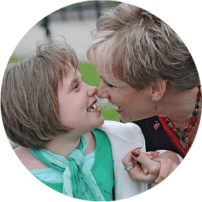
Ashlin’s Success Story
For Ashlin’s family, the first several months were so exciting and filled with all the normal baby stuff. After several months, Tracy and Dave, Ashlin’s parents, began to notice that Ashlin didn’t seem to be experiencing normal baby milestones in the sequence or time frames one would expect. Things like rolling over, sitting up, crawling, standing and walking seemed delayed. They tried not to panic and told themselves some babies progress slower than others…she’ll get it. Then Tracy and Dave noticed Ashlin seemed to lose these skills overnight. One day she could do these things and the next day she didn’t know how to do it.
For more information on Options Services, contact Lynette Weber
Mental Health Services
Our mental health programs are founded under evidence-based practice and are for individuals diagnosed with a Serious Mental Illness or Serious and Persistent Mental Illness. Our focus is to help individuals manage their mental health so that they can improve functioning in many different realms of their day-to-day lives and live the life they want to live.
Adult Rehabilitative Mental Health Services
— helps enable recipients to develop and enhance psychiatric stability, social competencies, personal and emotional adjustment, and independent living and community skills when these abilities are impaired by symptoms of a mental illness. Meeting with the recipients one on one in the community to help overcome barriers and improve functioning so that recovery goals are achieved.
Individual Psychotherapy
— sometimes referred to as talk therapy, is a treatment to help individuals with a range of issues and problems including depression, anxiety, loss, difficulty coping, trauma, and stressors. Therapy is based on a trusting and supportive relationship with the therapist which allows the individual to express feelings openly, identify patterns in thinking and behavior, develop effective coping techniques and improve sense of well-being and functioning. Therapy can be a stand-alone treatment or can be provided in concert with other mental health therapies such as medications, case management and psychosocial rehabilitation (ARMHS).
Diagnostic Assessment
— is a comprehensive mental health evaluation that serves as the starting point for any mental health treatment. It includes a systematic review of current problems and symptoms, history of the problems, current, and past medical problems, mental status exam, substance usage, developmental and social history, current life circumstances, risk assessment, and cultural factors. The diagnostic assessment determines the presence of any mental disorders as defined in The Diagnostic and Statistical Manual of Mental Disorder and provides recommendations for treatment and services. Certain programs such as ARMHS and mental health case management require the completion of a diagnostic assessment to determine eligibility.
Aftercare
— provides intensive, short-term psychiatric stabilization and case management services. This service is available to adults who have a serious mental illness or serious and persistent mental illness who need supports beyond what other mental health services provide.
Referrals
 The first step to receiving services is completing our online referral form. Please follow the instructions on the form and submit. Having a Release of Information signed for all current and recent mental health providers will ensure timely processing of referral. These can be faxed to 218-236-1481, mailed to the CCRI main office, or emailed to Shayna.Hendricksen@CreativeCare.org (secure email available upon request). Professional referents: please fax a Diagnostic Assessment completed within the past six months, if available.We look forward to hearing from you. A printable form is available here.
The first step to receiving services is completing our online referral form. Please follow the instructions on the form and submit. Having a Release of Information signed for all current and recent mental health providers will ensure timely processing of referral. These can be faxed to 218-236-1481, mailed to the CCRI main office, or emailed to Shayna.Hendricksen@CreativeCare.org (secure email available upon request). Professional referents: please fax a Diagnostic Assessment completed within the past six months, if available.We look forward to hearing from you. A printable form is available here.
For more information on Mental Health Services, contact Julia Dwyer.
Additional Resources
Meet Our Mental Health Services Team

Kaitlyn Bock

Jonathon Dullea

Julia Dwyer

Salome Hoff

Sierra Kostela

Pat Lenertz

Andrea Macias

Kanaly Meyer

Paige Underhill
Elsie’s Success Story
 Nzambissosso ‘Elsie’ Mouithys is a fun, caring, happy, and eager young woman, sister, and daughter.
Nzambissosso ‘Elsie’ Mouithys is a fun, caring, happy, and eager young woman, sister, and daughter.
Elsie was born in Congo, Africa and moved to the United States with her sister and mom at the young age of eight. When she was 18 years old, she began to experience serious mental health symptoms including extreme paranoia, hallucinations, aggression, disconnect from others, as well as struggles with medication compliance. Following her high school graduation in Louisville, Kentucky, she had her first psychiatric hospitalization and has been readmitted a handful of times across the country. Elsie’s most recent hospitalization brought her to the Fergus Falls Community Behavioral Health Hospital and lasted eight long months. As she prepared for discharge, she was connected to CCRI Aftercare services.
For more information on Mental Health Services, contact Julia Dwyer.
Life Enrichment
Community involvement is a key component of CCRI’s mission to enhance and enrich the lives and learning of people with disabilities. On all levels, staff members encourage individuals to take part in community and leisure-time activities.
The Life Enrichment Program opens the door to even greater involvement. From local activities such as bowling leagues and birthday clubs, to day trips, to extended travel to popular destinations, our staff is dedicated to expanding each participant’s experience based on individual needs and aspirations. We provide support and encouragement for individuals to become visible, productive members of the community.
Program Benefits
For Participants
- Helps build skills in the areas of socialization, communication, and recreational leisure
- Promotes greater independence and power of choice
- Allows individuals to be seen and heard (with or without words) as active and productive community members
- Encourages social independence
For the Community
- Improves awareness of both the needs and contributions of people with disabilities
- Increases interest in community involvement for those we support
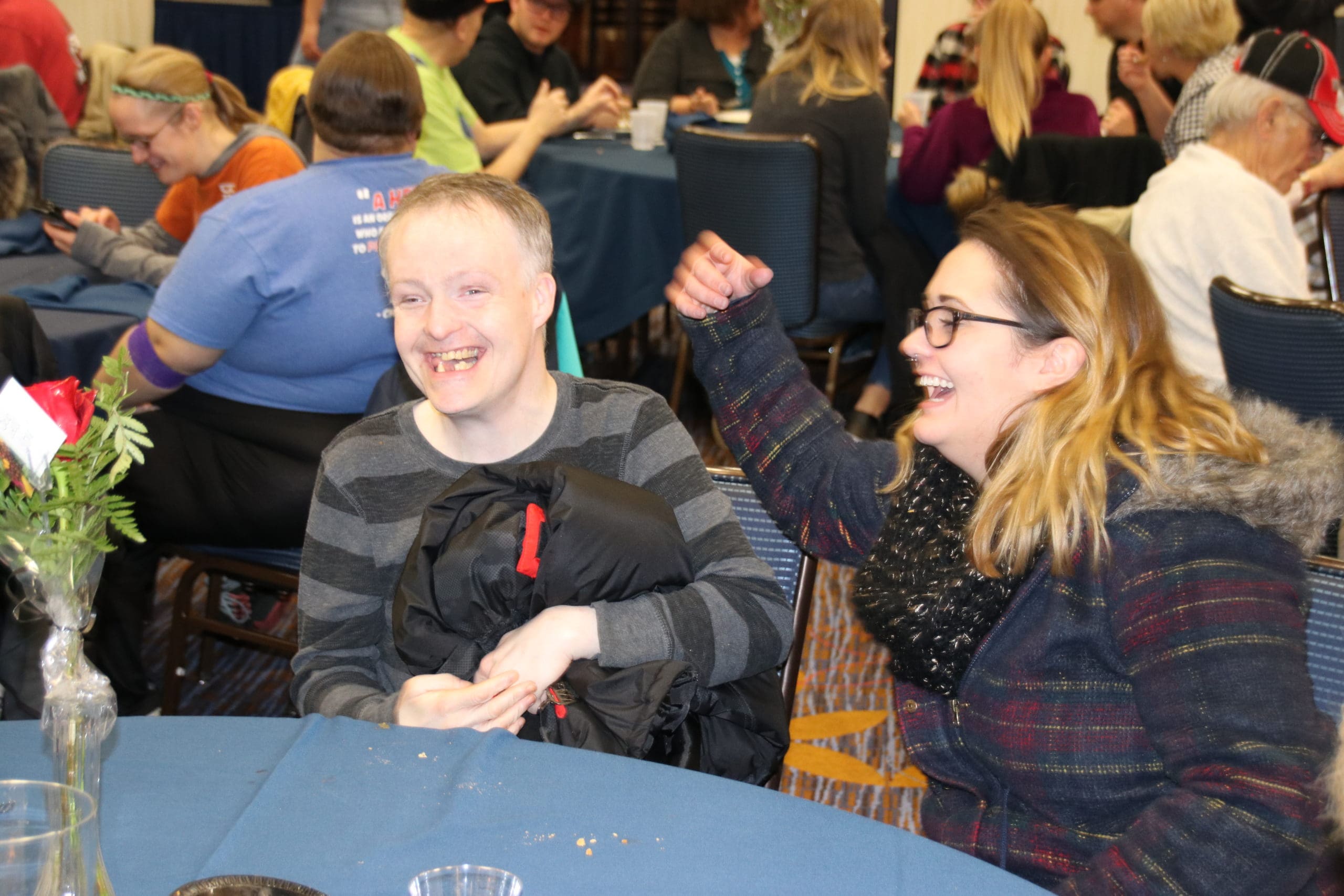
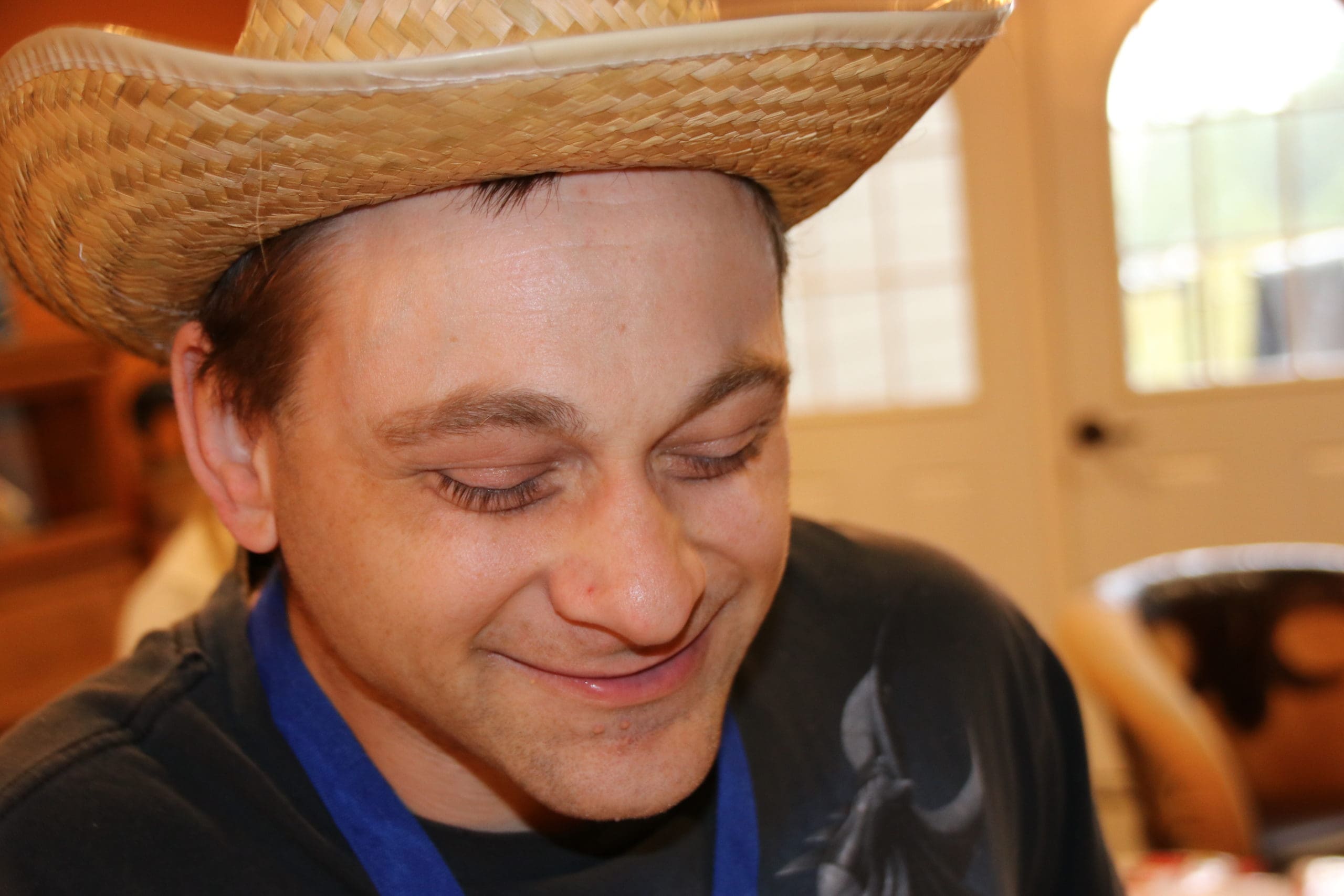
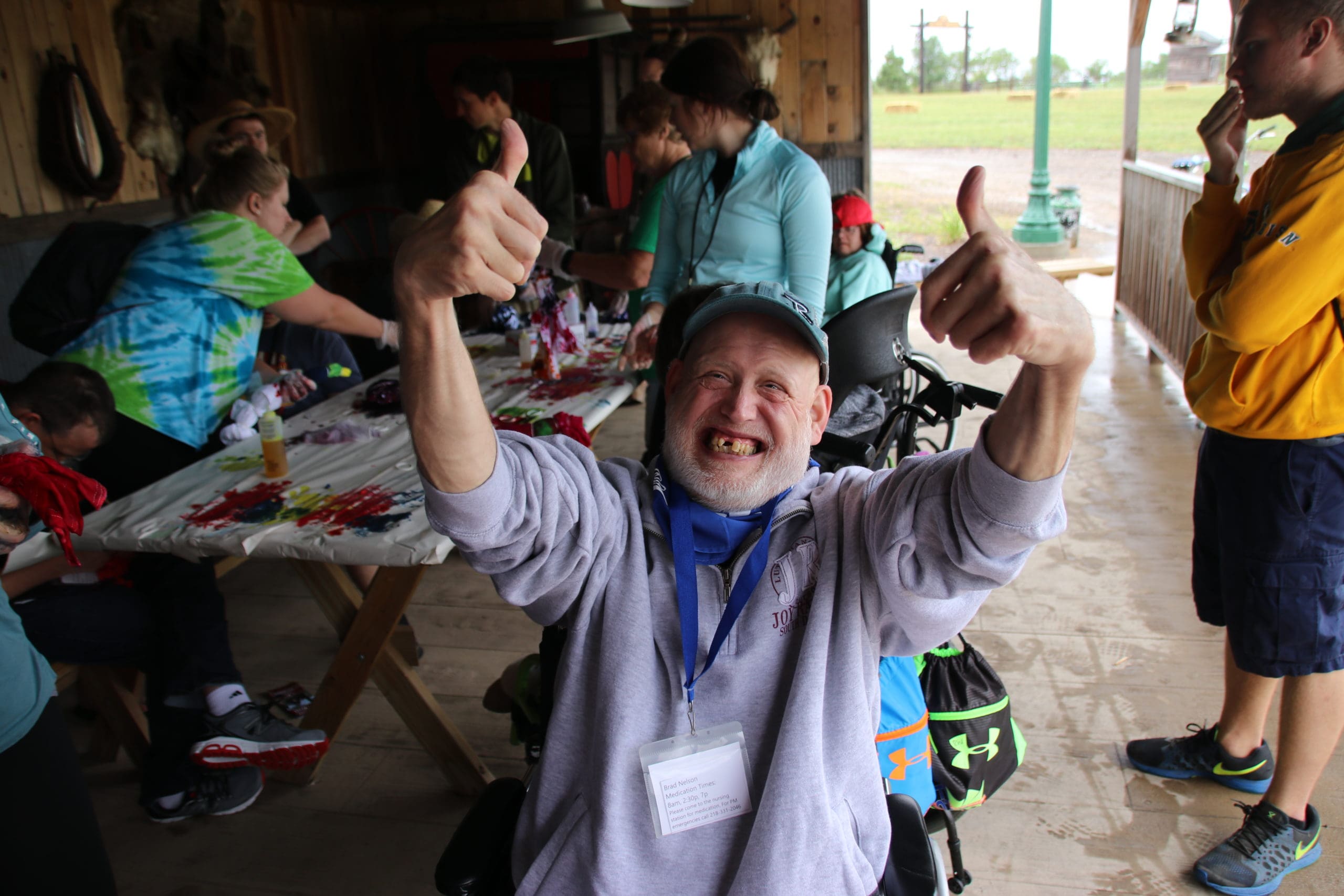
Positive Support Services (PSS)
Positive Support Services (PSS) are designed to promote positive change, independence, and an improved quality of life for people with disabilities. Through this service, we aim to understand and address challenging behaviors effectively through a person-centered approach, proactive strategies, and team collaboration and decision making. These services create inclusive environments that foster growth, learning, and meaningful relationship by supporting people with disabilities, their families, and their caregivers.
We focus on understanding the reasons behind challenging behaviors and implementing strategies to promote positive change and using evidence-based approaches designed to enhance the quality of life for people with disabilities.
Functional Behavioral Assessments (FBA)
PSS use functional assessment tools to understand the purpose or function of challenging behaviors. By identifying the underlying causes, interventions can be tailored to address specific needs and promote positive alternatives.
Key Principles of PSS
- Person-centered Approach: Our PSS services put the unique needs, preferences, and goals of each person first. We recognize behavior is a form of communication and aim to understand the underlying reason for the behavior in order to provide appropriate support.
- Teamwork: Interdisciplinary teams work together to develop and implement effective behavior support plans. Collaboration promotes consistency and increases the potential for positive outcomes.
- Positive Reinforcement: PSS focuses on positive reinforcement strategies which are used to motivate and encourage as well as promote skill development and adaptive behaviors.
- Proactive Strategies: PSS emphasizes proactive interventions to prevent challenging behaviors before they occur. This includes creating a structured environment, teaching alternative skills, and implementing individualized supports to help reduce triggers and enhance coping strategies.
- Teaching Replacement Behaviors: PSS services aim to teach alternative, appropriate behaviors to replace challenging ones. By focusing on skill-building and providing opportunities for success, people learn effective ways to communicate and better meet their needs.
- Data-driven Decision Making: PSS utilizes data collection and analysis to monitor progress, identify patterns, and make informed decisions regarding intervention effectiveness. Data helps to adjust strategies as needed and measure outcomes.
Benefits of Positive Support Services
- Improved Quality of Life: By addressing challenging behaviors, the people we serve are able to experience a better quality of life, promoting both their physical and emotional well-being.
- Enhanced Independence: PSS empowers people to develop and utilize adaptive skills, increasing their independence in many areas of life, including self-care, social interactions, and community participation.
- Strengthened Relationships: Through a person-centered approach and collaborative teamwork, PSS support the development of positive relationships between individuals, caregivers, and support professionals, creating a more supportive and inclusive environment.
- Skill Development: PSS focus on teaching new skills and alternative behaviors, helping overcome challenges, achieve personal goals, and maximize potential for growth and learning.
- Reduction in Challenging Behaviors: By addressing the underlying causes of challenging behavior, PSS can significantly decrease their occurrence, promoting a more positive and harmonious environment for all.
- Consistency and Generalization: PSS strategies can be implemented across various settings, allowing people to generalize their newly acquired skills and positive behaviors to different contexts which promotes greater independence and success.
For more information on PSS services, contact Melanie Eidsmoe.

 Alongside Elsie is her biggest supporter and rock during every step of the way, her mother, Larissa. As Elsie was being prepared for discharge from Fergus Falls, her team met consistently to ensure appropriate supports were in place for continued recovery in the community. The goals for both mom and Elsie were to stay out of the hospital and get her feeling like to the fun, outgoing, and happy girl she was. As her Aftercare Practitioner, we worked through the rocky road that included long interviews to get services, managing changes with insurance and medications, connecting to community resources, and getting long term providers.
Alongside Elsie is her biggest supporter and rock during every step of the way, her mother, Larissa. As Elsie was being prepared for discharge from Fergus Falls, her team met consistently to ensure appropriate supports were in place for continued recovery in the community. The goals for both mom and Elsie were to stay out of the hospital and get her feeling like to the fun, outgoing, and happy girl she was. As her Aftercare Practitioner, we worked through the rocky road that included long interviews to get services, managing changes with insurance and medications, connecting to community resources, and getting long term providers.
 Elsie now has a long-term team filled with one-to-one staffing she quickly became connected with. She has enjoyed getting her favorite Chinese food, trips to Target, and learning to use her own debit card consistently. She now has case management, a medication prescriber, and a CADI service coordinator which provide continued support for both Elsie and her mother.
Elsie now has a long-term team filled with one-to-one staffing she quickly became connected with. She has enjoyed getting her favorite Chinese food, trips to Target, and learning to use her own debit card consistently. She now has case management, a medication prescriber, and a CADI service coordinator which provide continued support for both Elsie and her mother. In the last month, I have slowly started to take steps back as her practitioner, showing just how well Elsie is doing. Working in Aftercare, it can be hard to both step into someone’s life during some of their most difficult struggles and to step back when they are so doing well once again. As Elsie prepares for her graduation from Aftercare, it’s nice to take a step back and see the progress made from her, her mother, and her team in just nine months. Aftercare was just one of the pieces of a complex puzzle that helped her become more independent, recover from extreme mental health distress, and live a meaningful and enriching life.
In the last month, I have slowly started to take steps back as her practitioner, showing just how well Elsie is doing. Working in Aftercare, it can be hard to both step into someone’s life during some of their most difficult struggles and to step back when they are so doing well once again. As Elsie prepares for her graduation from Aftercare, it’s nice to take a step back and see the progress made from her, her mother, and her team in just nine months. Aftercare was just one of the pieces of a complex puzzle that helped her become more independent, recover from extreme mental health distress, and live a meaningful and enriching life.